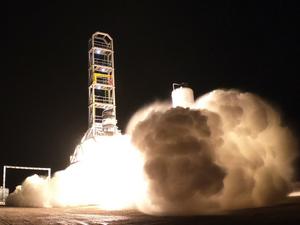
Video surveillance on a DVD or hard drive may be helpful. But having footage in the cloud where where you can easily access it, build new features and apply AI analysis is the future, says Austin serial entrepreneur Dean Drako.
Drako was amongst the first to bring video surveillance to the cloud when he launched Eagle Eye Networks in 2012. That's proven to be a hit. The company, which lists customers including McDonald's and Walmart, has grown to more than 200 employees globally, including roughly 150 in Austin and 30 to 40 in Amsterdam.
This week, it announced it has raised a $40 million Series E round from Palo Alto-based VC firm Accel to accelerate its product development and quickly hire about 100 new employees in engineering, sales, marketing and other roles. Drako, who previously founded Barracuda Networks, said he believes it may be the first time a top tier VC firm has made a major investment in video surveillance. The startup has now raised about $100 million in funding.
Drako said the company remains focused on making customers happy -- it isn't targeting an exit, but will consider opportunities as they arise. The startup is working on features, supporting newly launched cameras and AI analysis of cloud-based video.
"Sifting through video is really tedious. So there's an opportunity to take all this great new AI technology that is being figured out and sorted through in the research domain and apply it to video surveillance problems," he said. "And that's what Eagle Eye has been working on. Because we have all the video in the cloud already, it makes it very practical for us to go and do AI on the video surveillance."

Eagle Eye's cameras have obvious applications for security -- including gun detection, suspicious actions and parking lot activity. Drako said Eagle Eye's technology is also used to count people in stores and to make correlations with advertising and promotions at an unnamed, Austin-based jewelry store. It's also used in restaurants to monitor foot traffic, as well as quickly see if the space is getting messy and track how long food is sitting out.
"I believe that AI is literally going to revolutionize how video surveillance can be used and what it's used for," he said. "We're talking about a big change here."
Drako said Eagle Eye's focus on having a true cloud-based video system has given it a head start to add new and future AI capabilities.
"We're in a position to really leverage AI like no one has ever been able to do with video surveillance," he said.
While competitors like Nest and Amazon's Blink offer consumer cameras that, like Eagle Eye, can send activity alerts, Drako said Eagle Eye differentiates by being compatible with more than 10,000 cameras, including those used in commercial, industrial and highly-specialized settings.
"New cameras come out everyday," he said. "We add support for five or 10 new cameras everyday."
Eagle Eye also has an open API that allows developers to create add-ons and plugins on the company's platform.
"We're rolling out a whole bunch of partnerships and a whole bunch of features on the API platform for developers that will be coming out this year," he said.
While Eagle Eye continues to push toward cutting-edge features, including extensive use of AI, the company has avoided integrating controversial facial recognition technology.
"We listen to what our customers want, and the facial rec stuff has not been a big thing people are looking for," he said, noting that banks and a few stores are interested in facial recognition to get alerts when someone who is wanted by authorities is on the property.
When the pandemic arrived, Eagle Eye saw restaurant deployments fall off to almost zero. But the company added temperature screening to its features, which were rolled out into restaurants and businesses, including Austin startup accelerator and coworking space Capital Factory.
Drako said the temperature sensing cameras are also being used in 20 to 30 schools to alert administrators of any student with an elevated temperature -- and it can screen hundreds of kids entering school buildings each morning.
"We're getting strong interest in it," he said. "But not as much as I had hoped."
Drako said he suspects even after a Covid-19 vaccine is widely available schools and businesses will still be interested in elevated temperature to limit outbreaks of flu or other illnesses.
"It's probably something we should have been doing before Covid," he said.







